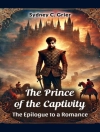In ‚Hadrian the Seventh, ‚ Frederick Rolfe masterfully weaves a narrative that explores themes of ambition, spirituality, and the human condition through the lens of a fictionalized papacy. The novel, rich with baroque language and vivid imagery, immerses readers in the intricacies of early 20th-century ecclesiastical politics and the personal struggles of its protagonist, George Arthur Rose, who becomes Pope Hadrian VII. Rolfe’s unique literary style, blending humor, pathos, and theological discourse, situates the novel within a context of early modernist literature, challenging the expectations of both character and genre. Frederick Rolfe, an enigmatic figure in literary history, experienced a life marked by rejection and peculiarities that inspired his exploration of religious themes and character-driven narratives. His background as a Catholic convert and his notorious social eccentricities profoundly informed his writings, allowing him to delve into the juxtaposition of divine aspiration and human frailty. ‚Hadrian the Seventh‘ serves as Rolfe’s magnum opus, drawing upon his experiences with rejection from society and the Church to forge a compelling critique of authority and artistry. This novel is recommended for readers interested in richly textured historical fiction that confronts the complexities of faith and identity. Rolfe’s intricate prose and nuanced characters offer an engaging meditation on power and the quest for meaning, making ‚Hadrian the Seventh‘ an essential read for anyone captivated by the interplay of history and the literary imagination.
Über den Autor
Frederick Rolfe, also known as Baron Corvo, was an enigmatic English writer, artist, and eccentric, born on July 22, 1860, in Cheapside, London. Rolfe’s literary career, though not widely celebrated during his lifetime, has attracted increasing interest posthumously, particularly for his novel ‚Hadrian the Seventh‘ published in 1904. This historical novel is a fantastical account of an Englishman who becomes Pope, and it provides a trenchant exploration of Rolfe’s own aspirations and self-image. Rolfe’s literary style is characterized by its wit, elaborate language, and the subversion of the reader’s expectations. His works often delve into autobiographical themes, including his failed attempts to join the priesthood, and are noted for their detail and precision, especially concerning ecclesiastical matters. Throughout his life, Rolfe struggled with financial instability and societal rejection but continued to produce a unique body of work that earned him a distinguished place among the curiosities of English literature. Despite a life marked by controversy and difficulty, Rolfe’s contribution to the genre of historical fiction and his vivid portrayal of the fin-de-siècle Catholic artistic circles remain a subject of study and admiration.












